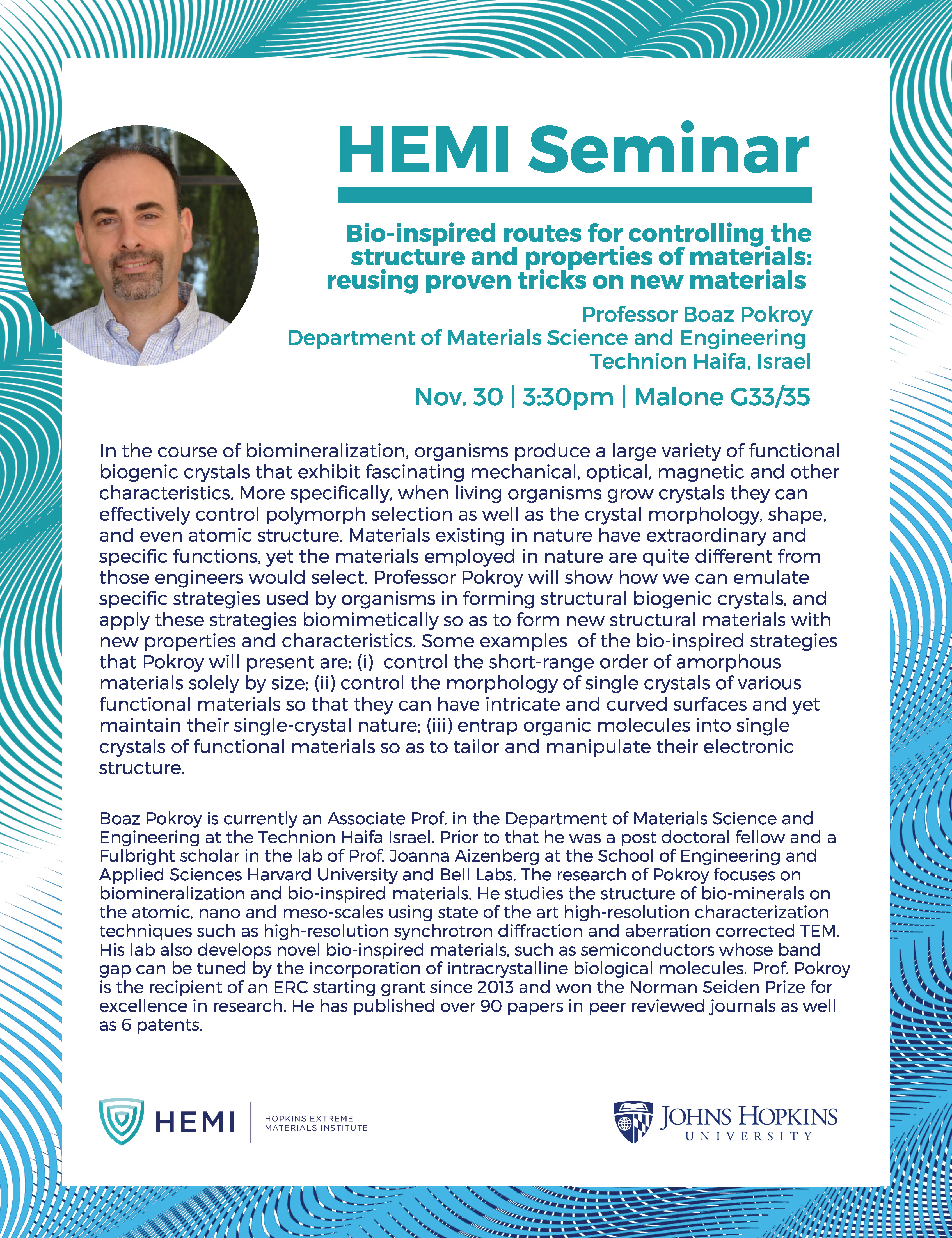November 30, 2018 @ 3:30 pm - 4:30 pm
Event Navigation
Bio-inspired routes for controlling the structure and properties of materials
In the course of biomineralization, organisms produce a large variety of functional biogenic crystals that exhibit fascinating mechanical, optical, magnetic and other characteristics. More specifically, when living organisms grow crystals they can effectively control polymorph selection as well as the crystal morphology, shape, and even atomic structure. Materials existing in nature have extraordinary and specific functions, yet the materials employed in nature are quite different from those engineers would select.
Professor Pokroy will show how we can emulate specific strategies used by organisms in forming structural biogenic crystals, and apply these strategies biomimetically so as to form new structural materials with new properties and characteristics.
Some examples of the bio-inspired strategies that Pokroy will present are:
(i) control the short-range order of amorphous materials solely by size;
(ii) control the morphology of single crystals of various functional materials so that they can have intricate and curved surfaces and yet maintain their single-crystal nature;
(iii) entrap organic molecules into single crystals of functional materials so as to tailor and manipulate their electronic structure.
Boaz Pokroy is currently an Associate Prof. in the Department of Materials Science and Engineering at the Technion Haifa Israel. Prior to that he was a post doctoral fellow and a Fulbright scholar in the lab of Prof. Joanna Aizenberg at the School of Engineering and Applied Sciences Harvard University, Cambridge MA USA and Bell Labs, Murray Hill NJ.
The research of Pokroy focuses on biomineralization and bio-inspired materials. He studies the structure of bio-minerals on the atomic, nano and meso-scales using state of the art high-resolution characterization techniques such as high-resolution synchrotron diffraction and aberration corrected TEM. Based on the strategies that organisms use to produce natural materials, his lab also develops novel bio-inspired materials, such as semiconductors whose band gap can be tuned by the incorporation of intracrystalline biological molecules; controlling the short range order of nano-amorphous materials and fabrication of superhydrophobic/superoleophobic surfaces for various applications.
Prof. Pokroy is the recipient of an ERC starting grant since 2013 and won the Norman Seiden Prize for excellence in research. He has published over 90 papers in peer reviewed journals as well as 6 patents.





